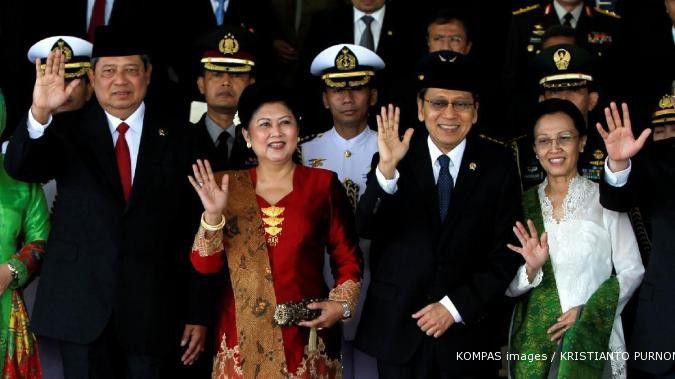VLADIVOSTOK. Indonesia remains cautious over a tariff cut proposal for environmental goods slated to be agreed upon during the upcoming leaders’ meeting of 21 member economies grouped in the Asia-Pacific Economic Cooperation (APEC).
The process to have the pact agreed upon is among the contentious issues discussed by senior APEC officials where developing countries, including Indonesia, are still exploring the impacts the policy may have on local industry.
“It’s pretty much a sensitive issue. The definition of environmental goods is still sketchy, and that the [planned] policy may have a huge impact on our industry,” said the Trade Ministry’s director general of international trade cooperation, Iman Pambagyo, on Tuesday.
APEC leaders adopted the Honolulu Declaration during APEC Summit in Honolulu, the US, last November, in which they outlined plans to develop a list of environmental goods that directly and positively contribute to green growth and sustainable development objectives.
The leaders had pledged to reduce by the end of 2015 the applied tariff rates on such products to 5 percent or less, and to draw up a list of goods subject to these tariff cuts during this year’s summit.
APEC members are now negotiating which products would be covered by the tariff cap. The planned pact will be approved during a meeting of heads of governments of APEC member economies on Sept. 8 and 9.
Iman said that not all local industries were able to comply with the environmental standards adopted by developed nations, and that they also did not have sufficient capacity to produce environmental goods.
“We don’t want to merely become the market [for imported environmental goods]. We should become a leading player as well,” said Iman. He said the domestic market for environmental goods was enormous as the government was committed to initiating clean energy and environmentally friendly projects, including in the construction of buildings and manufacturing plants.
According to the US Commerce Department, the global market for environmental goods topped US$782.4 billion in 2008, with the US by far the largest single market at $299.5 billion.
The planned pact could be a boost for big US manufacturers that are already in the business, such as
General Electric.
The US has long proposed lower global tariffs for its solar panels, turbines, water treatment pumps, waste incinerators, batteries and other products to reduce the cost of the goods.
During Tuesday’s meeting with President Susilo Bambang Yudho-yono in Jakarta, US Secretary of State Hillary Clinton urged Indonesia to support the planned green pact during the upcoming APEC Summit.
“She has demanded Indonesia’s support for reduction in the goods during the APEC meeting,” said Trade Minister Gita Wirjawan.
Gita said that although Indonesia supported the pact, the local industry would need more capacity and support to catch up with those of developed nations in terms of environmental management. “Our capacity to produce environmentally friendly goods is far lower than the developed nations. Thus, we can only accept some of the request [of items to be covered by the tariff cut].”
Seventy-five items have been proposed to be covered under the planned pact, but not all APEC member economies have agreed. (Rendi A. Witular and Linda Yulisman/ The Jakarta Post)
RI wary of green pact plan
September 06, 2012, 09.51 AM
Reporter: Edy Can
| Editor: Edy Can
Latest News
-
February 24, 2026, 03.38 PM
Eni to Reach Final Investment Decision for Indonesia Gas Projects Next Month
-
February 24, 2026, 01.00 PM
Asia Stocks Try to Steady after Wall Street Selloff Sims Mood
-
February 23, 2026, 04.50 PM
Wall Street Futures and Dollar Slide on Trump Tariff Tumult
-
February 23, 2026, 02.17 PM
Indonesia's Government Spending Jumps 26% in January 2026
-
February 23, 2026, 01.47 PM
Indonesia's Government Spending Jumps 26% in January
-
February 21, 2026, 06.00 AM
Indonesia's Pertamina to Maintain Bidding Process for US Energy Imports
-
February 20, 2026, 01.23 PM
Indonesia Secures 19% Tariff Deal with US, Palm Oil and Other Commodities Exempt
-
February 20, 2026, 08.33 AM
Indonesia, US Sign Agreement on Reciprocal Trade, Indonesian Ministry Says
-
February 19, 2026, 08.12 AM
Indonesia, Freeport Units Sign MoU to Extend Mining Permit beyond 2041










